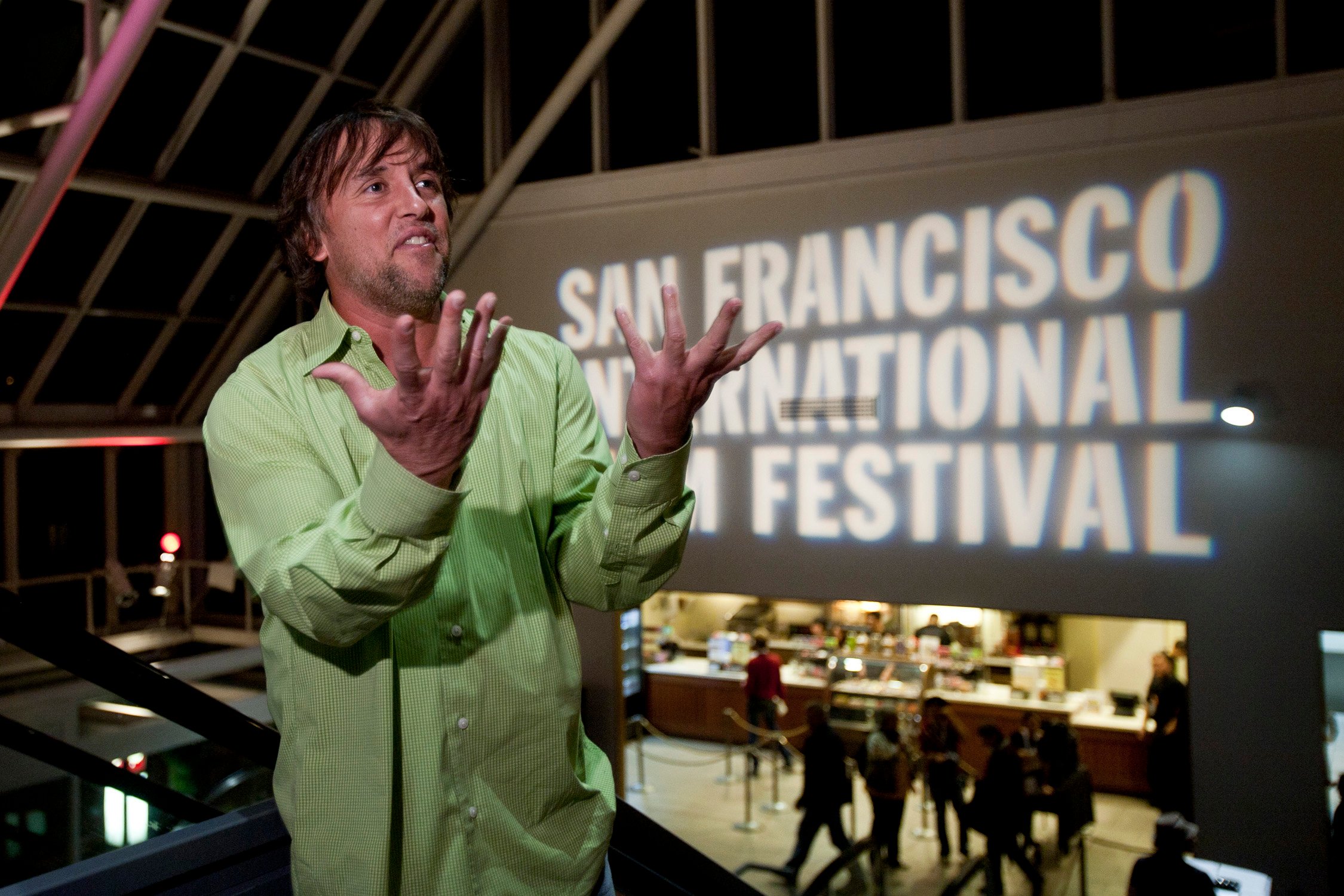Starting today, hundreds of filmmakers will be descending on Park City, Utah — home of the annual Sundance Film Festival, which opens tonight — in hopes of launching their careers in the motion picture industry. Some will fade into obscurity, and others will get their big breaks after achieving widespread commendation. Here is a list of five directors who, over the years, managed to distinguish themselves among the fierce competition at Sundance and went on to become some of the top names in modern American cinema.
Richard Linklater
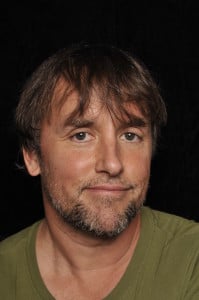
Richard Linklater, director of last year’s critical sensation “Boyhood,” made his feature filmmaking debut at the 1991 festival with “Slacker,” a meandering film about a day in the life of a gaggle of misfits in Austin, Texas. Although it was released in only a handful of art-house cinemas, after Sundance’s rejection of an early cut, “Slacker” garnered a fair amount of attention, and a more polished iteration eventually emerged at the festival a few years later. There, “Slacker” became a sleeper hit, earning the young director Sundance’s Grand Jury Prize.
Since then, Linklater has continued to pay homage to his roots, returning to Sundance with world premieres of his films, including “Before Midnight,” “Waking Life” and, of course, “Boyhood.”
What to Watch: Although “Boyhood” deserves every bit of acclaim that it has received, Linklater’s “Before Sunset” is still my personal favorite. Occurring in real time, “Before Sunset” is an 80-minute emotional roller-coaster of witty banter and heartfelt soul-searching.
“Before Sunset” is available, in a two-disc set, at Green Library’s Media and Microtext Center.
David O. Russell
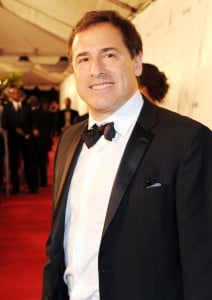
Years ago, the great filmmaker behind “The Fighter,” “Silver Linings Playbook” and “American Hustle” was just another nobody. That is, until the 1994 Sundance premiere of his first feature “Spanking the Monkey.” Centered upon the burgeoning incestuous relationship between an injured woman and her adult son, “Spanking the Monkey” both shocked and captivated audiences before collecting the prestigious Audience Award at the festival’s conclusion. The film was a minor box office success, collecting a little over a million dollars, a quantity five times greater than the film’s modest $200,000 budget.
Since the release of “Spanking the Monkey,” Russell has remained highly active, producing a steady crop of mainstream and independent fare. Although the director has yet to return to Sundance, Russell still owes much of his early success to the unconventional Park City festival.
What to Watch: Among David O. Russell’s early films, “Flirting with Disaster” is probably his best — and most absurd. With an ensemble cast that includes Ben Stiller, Patricia Arquette (of “Boyhood” fame), Téa Leoni, Mary Tyler Moore, Alan Alda, Josh Brolin, Richard Jenkins, and Lily Tomlin, “Flirting with Disaster” is best described as a thinking man’s “Meet the Fockers.”
“Flirting with Disaster” is available at Green Library’s Media and Microtext Center.
Darren Aronofsky
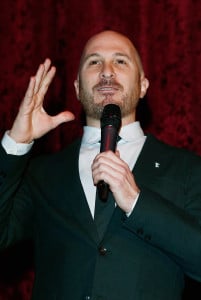
In 1998, Sundance launched Darren Aronofsky’s career by screening his directorial debut, the psychological thriller “Pi.” The film was a surprise success at the festival, and Sundance eventually crowned Aronofsky with its Best Director Award.
Since then, Aronofsky has become one of the most controversial filmmakers active in today’s industry. His films, including “The Fountain,” “Noah” and “The Wrestler,” have the tendency to polarize. For the most part, you either love Darren Aronofsky or you hate him.
Since the release of “Pi,” Aronofsky has yet to return to Sundance, electing to take his films elsewhere, including the likes of Venice, Toronto and even Cannes. Regardless, Aronofsky has been doing just fine. Aronofsky’s 2011 feature, “Black Swan,” received five Academy Award nominations, including Best Picture and Best Director.
What to Watch: No two films of Aronofsky’s are alike, so it’s rather difficult to make a thorough recommendation regarding the director’s work. I’d suggest, however, that you start with “Requiem for a Dream,” which boasts first-rate performances, groundbreaking editing and a score composed by Clint Mansell and performed by the Kronos Quartet that is simply addicting.
“Requiem for a Dream” is available, in DVD and Blu-ray, at Green Library’s Media and Microtext Center.
Wes Anderson
Although eccentric auteur Wes Anderson didn’t technically make his feature filmmaking debut at Sundance, his first short film “Bottle Rocket” screened in competition at the festival in 1994. Starring then unknowns Luke and Owen Wilson, the short was ultimately adapted into a full-length film, which was inexplicably rejected by Sundance in 1996. Perhaps a smidge bitter about his treatment at the hands of the festival, none of Anderson’s productions have debuted at the American festival since. Regardless, Anderson owes a great deal to Sundance for even screening “Bottle Rocket,” which ultimately provided the festival exposure so critical to the production of the short’s feature-length counterpart.
What to Watch: If you’re going to watch any Anderson, you should definitely start with the “The Royal Tenenbaums.” With an A-list cast that includes all of Anderson’s favored performers — including the aforementioned Wilson brothers — “Tenenbaums” is a ridiculously enjoyable dysfunctional family romp.
“The Royal Tenenbaums” is available at Green Library’s Media and Microtext Center.
Steven Soderbergh
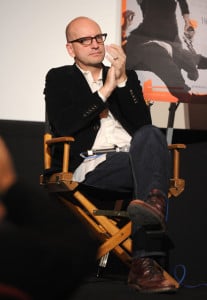
Before “Sex, Lies, and Videotape” won the Palme D’Or at the 1989 Cannes Film Festival — the festival’s top prize — Steven Soderbergh’s first flick managed to collect the Audience Award at the Sundance Film Festival. Soderbergh, despite his Cannes exposure, is still indebted to Sundance for the film’s eventual mainstream success.
Soderbergh has since emerged as one of cinema’s modern greats. His films — including “Traffic,” “Erin Brockovich” and “Behind the Candelabra” — have generated considerable admiration among critics and audiences alike.
Although Soderbergh has repeatedly announced his intention to retire in recent years, the prolific filmmaker’s ongoing work on projects like Cinemax’s “The Knick” suggests that Soderbergh has no intention of going anywhere any time soon.
What to Watch: Although “Erin Brockovich” and “Traffic” are Soderbergh’s most well-known films, “Side Effects” is probably his most unabashedly entertaining. With plot twists shoehorned in wherever possible — coupled with a wonderfully demented turn from Rooney Mara (“The Girl with the Dragon Tattoo”) — “Side Effects” is lurid gold.
“Side Effects” is available, in DVD and Blu-ray, at Green Library’s Media and Microtext Center.
Contact Will Ferrer at wferrer ‘at’ stanford.edu.
